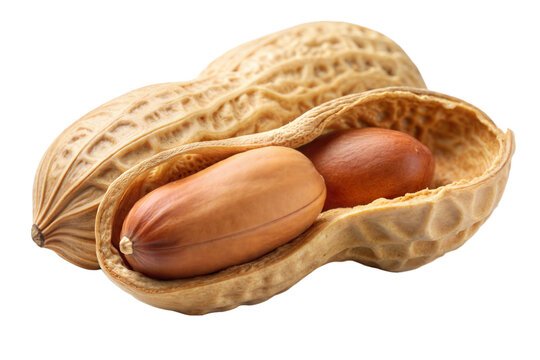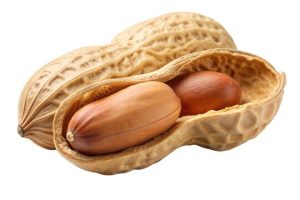Exploring The Penut: Nutritional Benefits And Uses

Looking to elevate your culinary creations with a touch of nutty goodness? Look no further than the humble penut! Packed with flavor and versatility, penuts can add a delightful crunch to salads, stir-fries, and baked goods. Whether you’re a seasoned chef or an amateur cook, penuts are sure to inspire your next kitchen adventure. Embrace the nutty goodness of penuts and take your dishes to a whole new level. Get ready to unleash the magic of this underrated ingredient in your cooking repertoire.
All About Peanut: A Nutty Adventure
The Origin of the Peanut
Have you ever wondered where peanuts come from? Well, let’s take a fascinating journey into the world of peanuts! Did you know that peanuts are not actually nuts? They belong to the legume family, which includes beans and lentils. Peanuts originated in South America and have been enjoyed by people for thousands of years. They were brought to North America by African slaves and have since become a popular snack all over the world.
Types of Peanuts
Peanuts come in various shapes and sizes. There are four main types of peanuts: Virginia, Runner, Spanish, and Valencia. Virginia peanuts are large and have a crunchy texture, while Runner peanuts are commonly used for making peanut butter. Spanish peanuts have smaller kernels and are often used for roasting. Valencia peanuts are usually smaller and sweeter, making them perfect for boiled peanuts, a popular snack in the southern United States.
The Health Benefits of Peanuts
Peanuts are not only delicious but also packed with nutrients that are good for our bodies. They are a great source of protein, which is essential for building and repairing muscles. Peanuts also contain healthy fats that are good for our hearts and provide energy for our bodies. Additionally, peanuts are rich in vitamins and minerals, such as vitamin E, magnesium, and potassium, which help keep our bodies healthy and strong.
Fun Facts About Peanuts
– Peanuts grow underground, not on trees like other nuts.
– It takes about 540 peanuts to make a 12-ounce jar of peanut butter.
– Two peanut farmers have been elected as President of the United States—Thomas Jefferson and Jimmy Carter.
– Peanuts are not actually nuts but are legumes like beans and lentils.
Cooking with Peanuts
Peanuts can be used in a variety of dishes, both savory and sweet. They can be roasted and salted for a crunchy snack, ground into peanut butter, or used as a key ingredient in dishes like peanut sauce for stir-fries or peanut brittle for a sweet treat. The versatility of peanuts makes them a favorite in many cuisines around the world.
Fun Peanut Recipes
Peanut Butter and Jelly Sandwich
– Ingredients:
– 2 slices of bread
– Peanut butter
– Jelly or jam of your choice
Spread peanut butter on one slice of bread and jelly on the other. Press the slices together to make a delicious sandwich!
Homemade Peanut Butter
– Ingredients:
– 2 cups of roasted peanuts
– 1-2 tablespoons of honey (optional)
– Salt to taste
Blend the roasted peanuts in a food processor until smooth. Add honey and salt to taste. Enjoy your homemade peanut butter on toast or with sliced apples!
In conclusion, peanuts are not just tasty snacks but also nutritious and versatile ingredients that can be enjoyed in many ways. Whether you like them roasted, boiled, or in a sandwich, peanuts are a fun and delicious addition to any meal. So, the next time you reach for a handful of peanuts, remember the nutty adventure they have been on to reach your plate!
The Peanuts Movie
Frequently Asked Questions
What is the nutritional value of peanuts?
Peanuts are a good source of protein, healthy fats, fiber, and various vitamins and minerals such as biotin, copper, and niacin. They also contain antioxidants and are known for their heart-healthy properties.
How should peanuts be stored to maintain freshness?
It is best to store peanuts in a cool, dry place, away from direct sunlight and moisture. Sealed containers or bags can help maintain their freshness. For longer shelf life, peanuts can also be refrigerated or frozen.
Are peanuts a common allergen?
Yes, peanuts are one of the most common food allergens. People with peanut allergies should avoid peanuts and products containing peanuts to prevent allergic reactions, which can range from mild symptoms to severe, life-threatening situations.
Final Thoughts
In conclusion, peanuts are versatile legumes that offer a range of health benefits. From providing essential nutrients to promoting heart health, peanuts are a nutritious snack option. Their high protein content makes them a great option for those following a plant-based diet. Including peanuts in your daily routine can help you stay satiated and energized throughout the day. Add some peanuts to your diet to enjoy their flavor and reap their health benefits.





